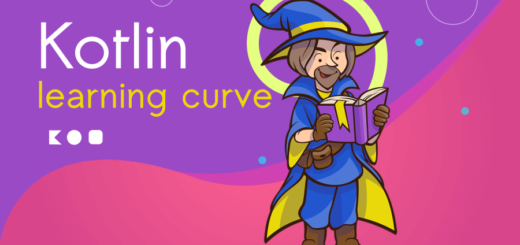Learn Kotlin in 30 Days : A Reasonable Study Plan [Updated]
Kotlin has quickly become a popular programming language. Whether you’re a beginner or experienced developer, learning Kotlin can boost your career. This 30-day plan will guide you through the essentials, ensuring you master Kotlin in just one month. Is it possible to learn Kotlin in 30 days? Let’s explore the learning plan.
![Learn Kotlin in 30 Days : A Reasonable Study Plan [Updated]](https://bigknol.com/wp-content/uploads/2024/08/learn_kotlin_in_30_days_plan.png)
Day 1-5: Setting Up and Basics
Start by setting up your development environment. Install IntelliJ IDEA, the preferred IDE for Kotlin. Next, familiarize yourself with Kotlin syntax. Learn about variables, data types, and basic operations. Practice by writing simple programs, such as calculating the sum of two numbers.
Code: (Sum of Two Numbers in Kotlin)
fun main() {
val number1 = 10
val number2 = 20
val sum = number1 + number2
println("The sum of $number1 and $number2 is $sum")
}Output
The sum of 10 and 20 is 30During these first five days, focus on understanding the basics. Write small code snippets daily. This habit will help you reinforce your knowledge. By day five, you should feel comfortable with Kotlin’s syntax and basic operations.
Cracking the Kotlin Code (Beginner)
Day 6-10: Control Flow and Functions
Now that you understand the basics, move on to control flow. Learn about if-else statements, when expressions, and loops. These concepts are essential for decision-making in your code.
Next, dive into functions. Functions are building blocks of any Kotlin program. Learn how to define and call functions. Practice writing reusable functions to solve common problems. By the end of day ten, you should be confident in using control flow statements and functions.
Kotlin Control Statements : If When For
Kotlin Functions : Single Expression, Named, Default
Operators in Kotlin : Let’s Practice with Examples
Conditional Operator in Kotlin : An Alternative for Ternary Operator
Kotlin String Interpolation : Format, Performance, Object Property
Default Parameter in Kotlin : Predefined Values
Nested Functions in Kotlin : Example Usage
Passing Functions as Parameters
Day 11-15: Object-Oriented Programming in Kotlin
Understanding object-oriented programming (OOP) is crucial when learning Kotlin. Start by learning about classes and objects. Explore how to create classes, instantiate objects, and access properties.
Next, dive into inheritance, polymorphism, and interfaces. These concepts allow you to build more complex and reusable code. Practice by creating small projects that utilize these OOP principles. By day fifteen, you should have a solid grasp of OOP in Kotlin.
Kotlin Classes and Objects : Let’s define a Class
Data Class in Kotlin : Copying, hashCode and toString
Kotlin lateinit : A guide to late initialization
Kotlin Sealed Classes : Restrict the use of Inheritance
Function Overloading in Kotlin
Interface Inheritance in Kotlin
Member Reference in Kotlin: Using (::) Operator Example
Abstract Class in Kotlin : Why They are Useful?
Kotlin Generics : How to get started with an example?
Day 16-20: Collections and Lambdas
Kotlin provides powerful collection frameworks. Learn about lists, sets, and maps, and how to manipulate them. Practice filtering, sorting, and transforming collections.
Next, explore lambdas and higher-order functions. Lambdas allow you to write concise and expressive code. Learn how to pass functions as arguments and return them from other functions. By the end of day twenty, you should be comfortable working with collections and lambdas.
Kotlin Arrays : Creating, Iterating, Filtering and Explore ArrayList
Kotlin ArrayList : An Essential Guide for Beginners
Maps in Kotlin : Let’s Store Items as Key Value Pairs
Set in Kotlin : Avoid Duplicates using mutableSetOf() Function
HashMap in Kotlin : Key Value Pair Data Structure
Kotlin Let Function : Null Safety and Scoping Example
Kotlin Elvis Operator: A Strong Null Safety Helper (Example)
Kotlin Lambda Function : How to return something ?
Kotlin vararg : Function, Spread Operator * Example
Day 21-25: Kotlin Coroutines
Concurrency is an important concept in modern programming. Kotlin Coroutines simplify asynchronous programming. Learn the basics of coroutines, including launching, delaying, and waiting for coroutines.
Next, explore structured concurrency and how it ensures that your coroutines are managed correctly. Practice by writing small programs that perform tasks in parallel. By day twenty-five, you should understand how to use Kotlin Coroutines effectively.
Kotlin Suspend Function: runBlocking and coroutineScope
Kotlin Coroutines join vs await: Handling Explicit Jobs [Examples]
Advantages of Kotlin Coroutines:How to Perform Heavy Tasks
Kotlin Flow Beginner Tutorial: Let’s Handle Data Streams
How to Add Dependencies in IntelliJ Idea :Step by Step
JSON Parser in Kotlin : 3 Easy Steps to Get Data from JSON
JSON File Reading in Kotlin: Using Gson and resources folder
Day 26-30: Building a Small Project
During these final days, focus on writing clean, efficient, and well-documented code. Test your code thoroughly to ensure it works as expected. By the end of day thirty, you should have a fully functional project that demonstrates your understanding of Kotlin.

Add-on Sessions
DSA with Kotlin: Where should I start off ?
Linear Search in Kotlin : Pros and Cons
Linked List in Kotlin : Implementing and Appending elements
Dynamic Type in Kotlin : A special type in JavaScript
Final Thoughts
Learning Kotlin in 30 days requires dedication and practice. By following this structured plan, you will master the basics and more advanced topics. Keep coding every day to reinforce your learning. Remember, consistency is key when you learn Kotlin in 30 days.



